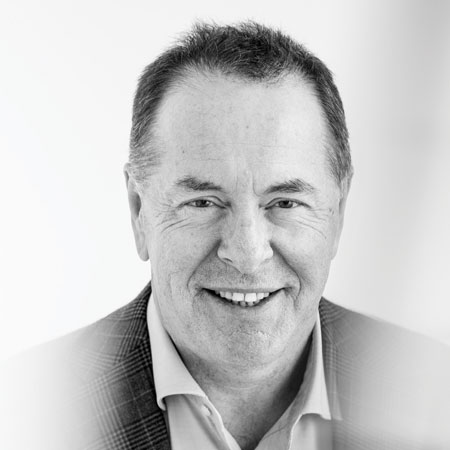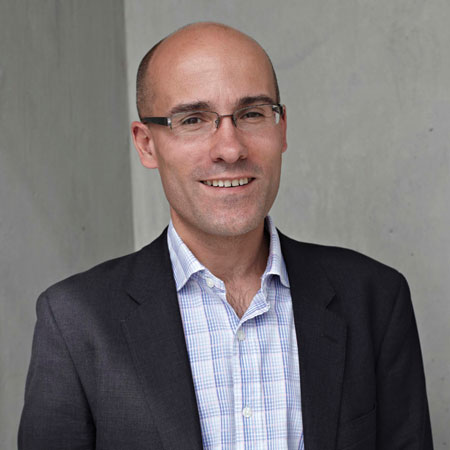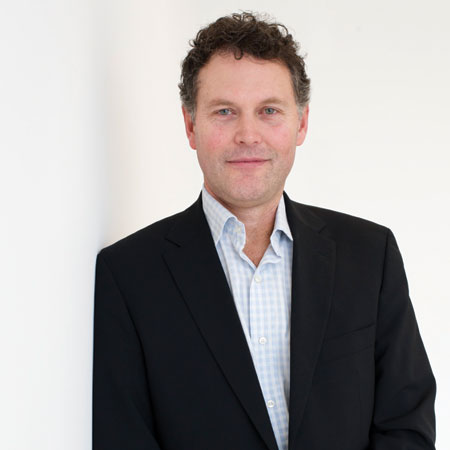Achilles Therapeutics Targets The Root Of Cancer
Executive Summary
Emerging Company Profile: With funding from Cancer Research UK and Syncona – and a wealth of science from its founders – newly launched London-based immuno-oncology company Achilles Therapeutics, believes it has identified cancer's weak spot.
Achilles' ultimate aim, according to CEO Chris Ashton, is to improve the current standard of care for those suffering with cancer by "cutting off the trunk of the cancer tree" and targeting what he believes to be the Achilles’ heel of the disease; the truncal initial mutations said to be present in every cancer cell.

Chris Ashton
The premise behind the company is based on research, recently published in Science,that details a way in which cancer can flourish when the body’s immune system does not react appropriately to DNA mutations in the tumor.
Ashton explained, "If you imagine a tree being the cancer, then the trunk of that tree are the initial truncal mutations," and these mutations remain throughout the life of the cancer. As the disease progresses, further mutations arise which Ashton refers to as branch mutations; these are only present in some of the cancer cells, not all. Achilles believes that targeting those branch mutations, only trims the cancer tree. It wants to target the truncal mutations, present in every cancer cell to tackle the cancer at its root.
"We're trying to find a unique identifier, a unique protein expressed on the surface of all cancer cells and we've got a particular way of identifying those and a therapeutic process whereby we can retrain the immune system to fight the cancer," Ashton said.

Charles Swanton
Achilles has exclusive access to the 850-patient non-small cell lung cancer (NSCLC) TracerX study – which is funded by Cancer Research Technology and NIHR University College London Hospitals. Professor Charlie Swanton, a founder of Achilles, is also a principal investigator on this study which looks at the evolution of cancer patients over time. With a bioinformatics process in place, the company has access to the patients, allowing it to take tumor samples and carry out deep DNA sequencing to identify unique truncal neo-antigens within them. Several parts of the tumor can be compared showing whether a specific mutation is present in all samples or just one.
Swanton explained that these individual protein markers, the truncal neo-antigens, seem important in defining a response to checkpoint inhibitor therapy, which suggested that a combination of tumor mutation and truncal antigens maybe vital for an active immune response in fighting cancer.
Elisa Petris, partner at Syncona Partners, added that the truncal neo-antigens are unique to each patient, meaning identifying them would need to be done on a patient-by-patient basis, giving rise to personalized vaccine or cell therapy treatment.
For every individual the case would be that their truncal antigens are identified and according to this a vaccine or cell therapy is constructed with the aim of retraining the immune system to fight against those particular antigens in and only in the cancer.
Achilles Therapeutics
Location: London
R&D Focus: Immuno-oncology with a particular focus on truncal neo-antigens
Founding Date: May 23, 2016
Founders: Professor Charles Swanton, Professor Karl Peggs, Dr. Sergio Quezada and Professor Mark Lowdell
Employees: 10
Financing: £13.2m ($17.5m)
Investors: Syncona, Cancer Research Technology and UCL Business
Previous research has shown it is necessary to target three or more truncal events to be able to limit the growth of tumors. "What we aim to do is leverage the wealth of truncal neo-antigens in a tumor and develop a more efficient immune response," Swanton said.
Achilles was formed in May 2016 by Wellcome Trust’s commercialization arm –Syncona Partners LLP, the Francis Crick Institute and CRT with help from UCL Business and contributions from its founders; professors Charles Swanton, Karl Peggs, Mark Lowdell and Dr. Sergio Quezada.
With Syncona as a lead investor and technology licensed from CRT and UCL, Achilles has raised £13.2m to carry the company through the next few years of research and into its first-in-man study.
CRT has an equity position in the company and as it progresses the former will be owed milestone payments and royalties on any resulting products.
The Competition

Phil L'Huiller
There are other companies currently in the same space also targeting neo-antigens in a bid to ignite an immune response against tumors, including Neon Therapeutics and Gritstone Oncology in the US and BioNTech in Germany. According to Petris, these companies are focused mostly on therapies concerning neo-antigens in general whereas Achilles uniqueness lies in its specific approach of zoning in on truncal neo-antigens.
"This is a relatively new field and we're not saying this method is the answer to every kind of cancer but for those with a high number of mutations," Ashton said.
Phil L'Huiller, director of business management at CRUK, highlighted that what further individualizes Achilles is the "intellectual horse power" behind the TracerX study and that contributed by the founders, CRT UK, UCL and the Francis Crick Institute.
|
Founders |
|
With a focus on genomic diversity within cancers and molecular mechanisms driving cancer, co-director of CRUK lung cancer centre of excellence, Charles Swanton has published more than 130 papers and is a Royal Society Napier professor at the Francis Crick Institute and UCL Cancer Institute, working on cancer evolution and genome instability. He is also a consultant thoracic oncologist at UCL Hospitals and group leader of the translational cancer therapeutics laboratory at CRUK. |
|
Karl Peggs is group leader of the stem cell transplantation and cellular immunotherapy group at UCL Cancer Institute and a consultant at UCLH. He runs a joint research lab with Sergio Quezada, another Achilles' founder, with interests in viral infections, immune reconstitution, adoptive cellular therapies and regulatory checkpoint-directed immune-therapeutics. Recently Peggs established the clinical translational side of the academic CAR-T cell program at UCLH. |
|
Sergio Quezada, group leader of the immune regulation and tumor immunotherapy Group at UCL Cancer Institute, is an expert in basic and translational research relating cancer immunology and has made contributions to the understanding of the mechanisms surrounding the activity of checkpoint inhibitors. |
|
Mark Lowdell, director of the centre for cell, gene & tissue therapeutics at the Royal Free Hospital, has been responsible for the development and delivery of various cell-based therapies and the first GMP-compliant embryonic stem-cell derived product trialed in the UK. |
What's On The Horizon?
CEO Ashton feels confident to move forward with the current funding and partners Achilles has secured and he outlined that his long-term hopes for the company encompass plans to develop a process targeting truncal neo-antigens that is scalable, ultimately treating thousands of patients. Regarding short-term goals, Achilles' next milestone is to begin the first-in-man study in the next two to three years with the therapy the company produces as a result of its research.
